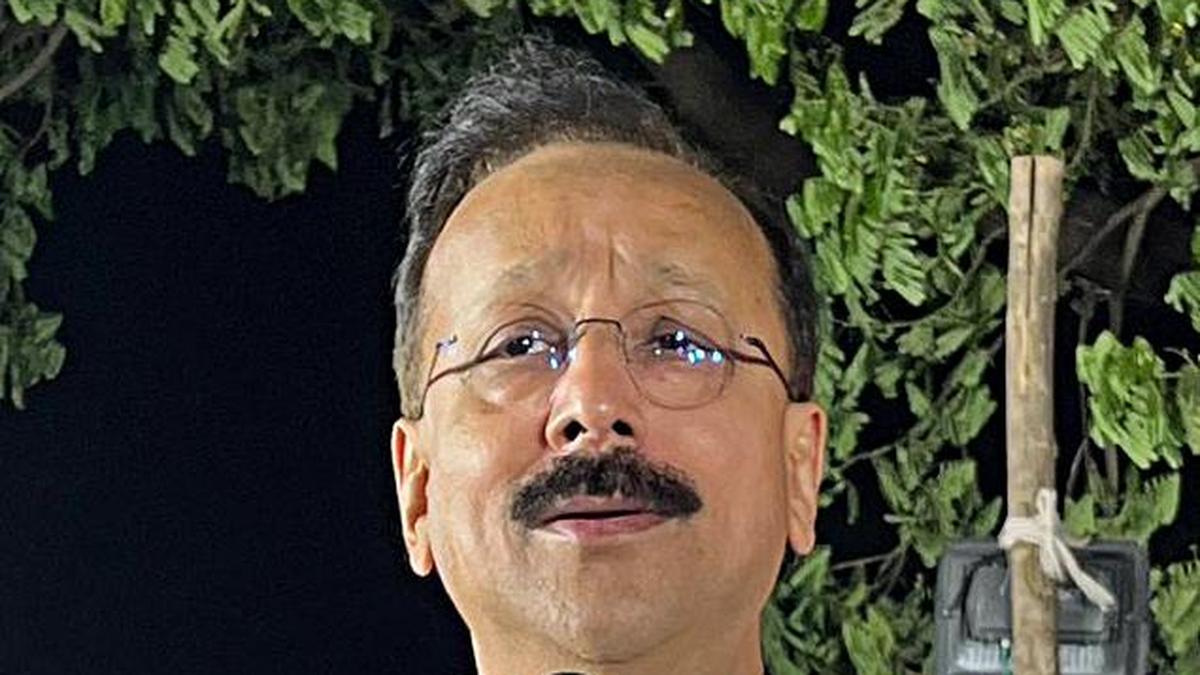There is a need to increase carbon sequestration in the soil, which is 0.15% at present against the preferred figure of 2% to 5 %, Sultan Ahmed Ismail, Member, State Planning Commission, said at The Hindu Sustainability Summit 2025.
Mr. Ismail also called for more interaction among government departments. He was speaking at a panel discussion on ‘Policy and Governance for Climate Action-How Regulation, Incentives, and Public-Private Collaboration Can Accelerate Sustainable Growth’, moderated by Kunal Shankar, Deputy Business Editor, The Hindu.
The ecologist also called upon industries to grow endemic trees and not go in for varieties that grow fast. Trees help to increase earthworm populations and they nurture soil microbes.
Rohit Agrawala, Director (Finance), Chennai Petroleum Corporation Limited, said his company believed that the planet, the people, and profits cannot be isolated.
“A pioneer in water conservation, usage and treatment, we have created a sustainability index for our own processes. We have data on how our CSR activities impact the people. We also have a road map for achieving net zero and are committed to it. CPCL operates with zero freshwater drawal and runs Asia’s first sewerage reclamation plant, along with a 5.8 MGD desalination unit ensuring circular water use.”
“Extensive rainwater harvesting across 57 sites and storm-water pond augmentation to 79,500 KL have enhanced waterbed recharge and flood resilience, reinforcing CPCL’s long-term water security vision. The refinery’s clean energy transition includes RLNG, BS-VI fuels, and 17.6 MW of solar and wind power, with the upcoming 400 kV grid enabling 100 MW renewable import,” he added.
CPCL is among the few companies in the oil industry that voluntarily adopted integrated annual reporting with limited assurance and business responsibility and sustainability reporting (BRSR). This marks a significant milestone in our journey towards transparent and accountable environmental, social, and governance (ESG) disclosures.
The integrated annual report highlights how CPCL creates value across financial, manufactured, intellectual, human, social, and natural capitals, while aligning each initiative with the United Nations Sustainable Development Goals. These assurance processes reflect our strong governance framework and reinforce stakeholder trust in CPCL’s sustainability commitments, he added.
Jayanthi Raju Vadivelu, Consulting Director, Corporate Sustainability and Climate Change, ERM, said corporate governance begins at the top, where leadership sets the tone and vision, which is then translated into strategy and policies that are implemented through processes and procedures.
Taking priority
Environmental concerns have become a new priority as the climate change impact intensifies. Organisations must identify their material environment social and governance ESG issues and use them as a foundation to attract finance for low-carbon technologies, not only for reporting. ESG disclosures and ratings increase transparency for stakeholders, but the true value lies in leveraging them to drive sustainable growth and transformative change, she added.
Girish Palwe, Assistant Mission Director, Tamil Nadu Climate Change Mission, Department of Environment and Climate Change, said the Tamil Nadu Chief Minister’s Green Fellowship Programme, being implemented in all the districts in the State, was doing well. Phase-I has been completed. He added that policies will not work unless there is a bottom-first approach, and one solution for all issues will not work.
The summit is presented by Chennai Petroleum Corporation Limited and co-presented by the Tamil Nadu Green Climate Company. The sustainability partner is Navin’s. The associate partner is NLC India Limited, and the green partner is Larsen & Toubro. The television Partner is Puthiya Thalaimurai. While the industry partner is the Confederation of Indian Industry, the knowledge partner is the Sustainable Energy and Environment Council. The digital news partner is The Federal.

 4 hours ago
5
4 hours ago
5









 English (US) ·
English (US) ·